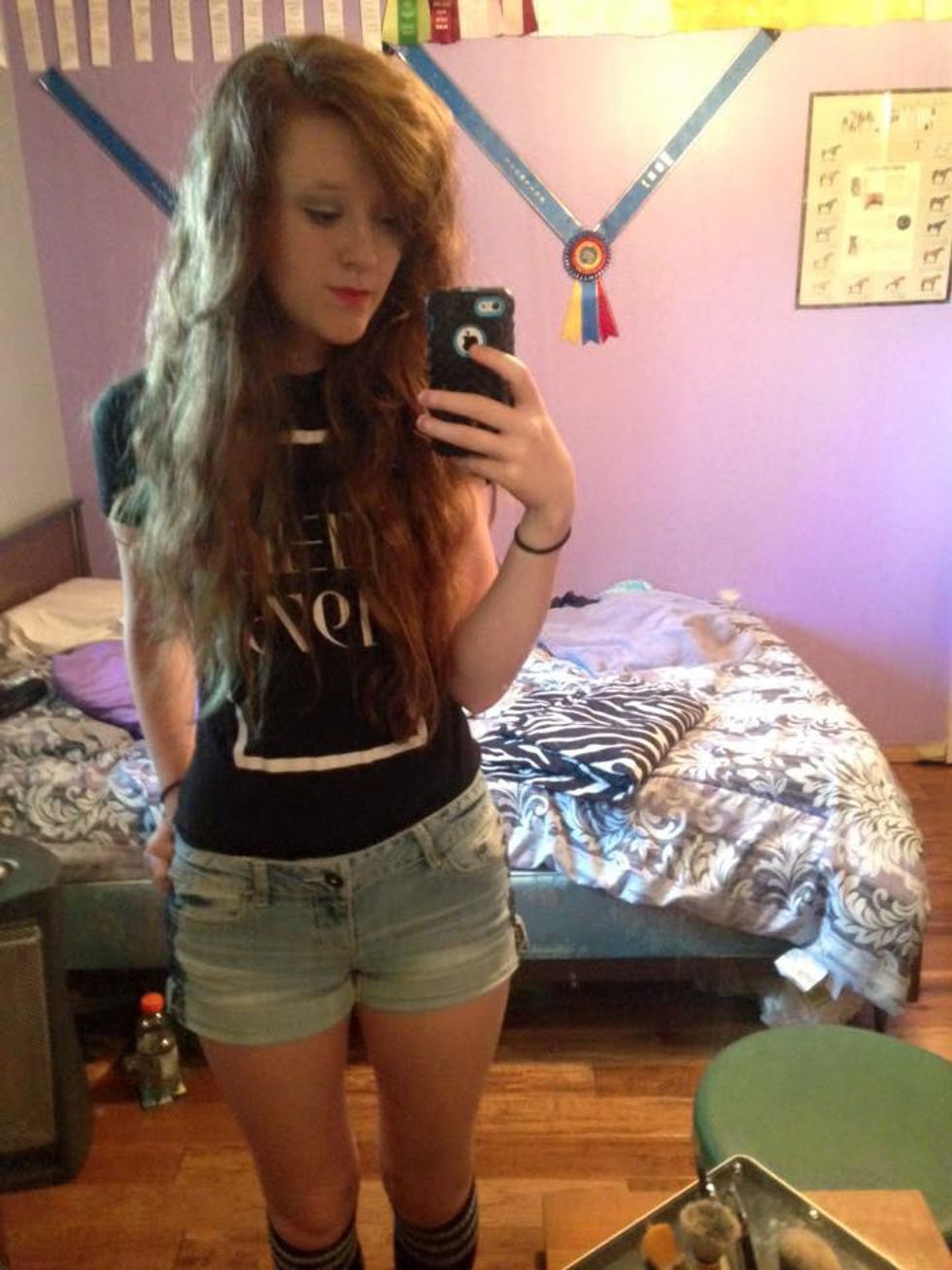As a 20 year old woman, one of my main forms of self-expression is through my outward appearance. Granted, I take this a little to the extremes sometimes. I have purple and pink streaks in my hair, my ears are stretched, and I have three tattoos that I will proudly show off when I can. However, the most common way that most women choose to express themselves seems to be the main reason women are shamed.
When I look at people, the first thing I notice is their clothing. I realize this varies with every person, but it's what I happen to recognize. How someone styles themselves says a lot to me about that person's day or current mood. When I come to class, if I notice a friend in sweatpants and a hoodie (when she usually wears jeans and dressy top) I know that she's probably not feeling well or she pulled an all-nighter. My friend, who usually wears a plain t-shirt and jeans, probably has a recital or a presentation if she's wearing a dress and dress heels. I also realize that most of the time, I express my attitude through my outfits. If I feel flirty, I'll put on some super skinny ripped jeans with a cute top and heels. If it's a normal day I'm probably wearing plain jeans and a band t-shirt. Most women that I know will turn to their outfit to express themselves.
What infuriates most women, is the absolute disregard from the clothing industry for the mental health of its customers. The manufacturers of women's clothing provide fodder for a variety of self-shaming and body morphia. If you aren't aware of what I'm talking about, let me break this down for you.
I am a very thin, tall woman. I am 5 ft 7, and weigh 115 lbs. (Yes, I am aware I am underweight, due to multiple medical conditions.) If I go shopping, here are the sizes I am in multiple retailers.
Hollister: Medium shirts, 5L jeans
Hot Topic: Small shirts, 5 jeans
H&M: X Small shirts, 8 jeans (10 in skirts)
Charlotte Russe: 5/M shirts, 3 jeans
Abercrombie: L shirts, 8 jeans
Do you see the problem here?
I am underweight. I am at least 15 lbs underweight, and I am a size 10 in some retailers? What do they think a size 0 or 00 is? If I am a 10, then what size are my friends who have healthy bodies?
I spoke to several other students at Millikin University, to get their opinions on this subject.
Do you think the wide variety of sizes sold by various retailers is psychologically damaging young women?
"Some retailers pose a much more harmful message than others (e.g., Abercrombie & Fitch's CEO has said some extremely disgusting things about "fat people," and their sizing is ridiculously tiny), but more than anything else, it's extremely disheartening and confusing to use such a broad spectrum of size numbers than can mean completely different things at different stores." -Catie Forthofer, Junior, Music Business.
"None of it [the current sizing range] makes sense. I think that the industry exploits the insecurities of women.But, I think society drives them [stigmas according to size], not the companies." - Jeffrey Davis, Senior, Information Systems
"Honestly the whole issue causes women to feel as if they are not skinny enough to fit into sizes they feel that they should be small enough to fit in. The varying sizes cause confusion and frustration in women everywhere, because they [women] are led to believe that they are supposed to fit in one size, but instead, they fit into three different sizes." -Alexsenia Ralat, Sophomore, Journalism
Ultimately, I believe a change needs to be made to the industry. One reasonable option presented is to transition the industry norm for women's bottoms to be marketed by the standards currently utilized by the men's clothing industry. This would, instead, make women's pants marked by the inseam and waist measurement (ex. 28x32, 30x30, 26x32). I think this would be the easiest way for women to purchase clothing. The other idea is to make a universal sizing chart, which U.S. clothing manufacturers would have to adhere to. This would mean that specific body measurements would translate to a specific size in the retailer. Women with size 28-32 would be a size 5, etc. The only stumbling block I see here is the potential for lack of response from manufacturers.
Something's gotta give, and it's not us women. We shouldn't have to deal with the complete confusion when trying to find clothing, and we definitely shouldn't have to deal with the societal shaming to be a certain size, especially when those the actual sizes do not match from retailer to retailer. It's time for a change, and we need to continuing speaking our minds on the issue at hand.
(P.S. Don't even get me started on the pocket issue.)





















